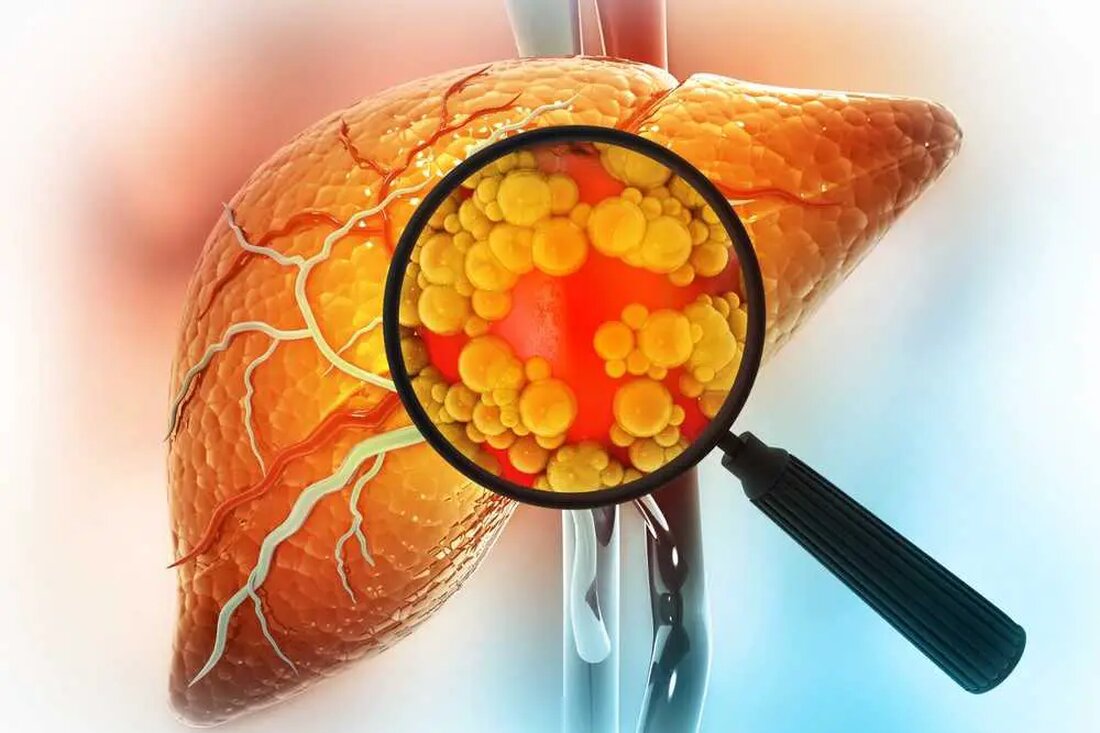The BEST foods to cleanse your liver
The liver, a versatile and important organ, performs a variety of tasks in the human body. The liver performs over 500 unique functions and its primary role is to detoxify toxins. Modern lifestyles with poor nutrition, stress, lack of exercise and constant exposure to environmental toxins often impair the vital functions of the liver. This exposure can lead to numerous health problems that require interventions to restore liver health. Fortunately, certain foods are known to support liver function and aid in detoxification. Deciphering the Role of the Liver The liver plays a crucial role in maintaining the overall health of the body,...

The BEST foods to cleanse your liver
The liver, a versatile and important organ, performs a variety of tasks in the human body. The liver performs over 500 unique functions and its primary role is to detoxify toxins. Modern lifestyles with poor nutrition, stress, lack of exercise and constant exposure to environmental toxins often impair the vital functions of the liver. This exposure can lead to numerous health problems that require interventions to restore liver health. Fortunately, certain foods are known to support liver function and aid in detoxification.
Decoding the role of the liver
The liver plays a crucial role in maintaining the overall health of the body, with detoxification being one of its central functions. It processes a variety of toxins, including those from alcohol and drugs, converting them into less harmful substances or preparing them for elimination from the body.
In addition to detoxification, the liver produces bile, an important substance for fat digestion. It also produces various hormones, metabolizes nutrients, synthesizes proteins, and stores vital vitamins and minerals.
Recognizing the symptoms of liver damage

Detecting liver damage can be challenging because symptoms often remain latent until the damage becomes severe. Here are some common symptoms of liver damage:
-
Itching:
A damaged liver can cause itching of the skin due to the buildup of bile products in the skin.
-
Jaundice:
This condition is characterized by yellowing of the skin and eyes due to a buildup of bilirubin, a bile pigment that is normally broken down and excreted by the liver.
-
Lethargy:
As liver damage progresses, those affected may experience fatigue or a feeling of constant tiredness.
-
Painful joints:
Liver damage can lead to joint and muscle pain, which is often confused with aging or overexertion.
-
Nausea:
This symptom may result from the liver's reduced ability to process toxins.
-
Decreased cognitive function:
Hepatic encephalopathy is a deterioration in brain function as a result of severe liver disease.
-
Gallstones:
If the liver does not break down cholesterol adequately, gallstones can form.
Recognizing these symptoms early can help mitigate further damage and promote timely intervention.
Liver cleansing foods

Nutritional interventions can have profound effects on liver health. Certain foods help detoxify the liver, reduce inflammation, and even repair and regenerate liver cells.
-
Cruciferous vegetables:
These vegetables, including broccoli, cabbage, and kale, contain sulforaphane, a compound known to help detoxify the liver and reduce inflammation. They also improve liver function, alleviate diabetes complications and support balanced blood sugar levels.
-
Garlic:
Sulfur-enriched garlic supports liver detoxification and acts as a natural antibiotic with its antibacterial, antifungal and antiviral properties. It also helps reduce liver fat and exerts anti-inflammatory, antioxidant and anti-cancer effects.
-
Turmeric:
Curcumin, the main active ingredient in turmeric, has powerful anti-inflammatory and antioxidant properties. It helps detoxify heavy metals, regenerate liver function and reduce liver fat.
-
Beets:
Beets are known for their liver detoxifying properties and can reduce liver enzymes, activate the release of bile salts, protect liver cells and reduce inflammation in the liver.
-
Mushrooms:
Certain mushrooms like reishi and maitake are rich in glutathione, a powerful antioxidant that supports liver health. They also help protect liver cells.
-
Avocados:
Avocados are known to repair and stabilize the liver. Avocados are high in glutathione and also have anti-inflammatory properties.
-
Extra virgin olive oil:
This oil can improve liver enzymes, reduce fat in the liver, improve insulin sensitivity and reduce insulin resistance. It also has a strong anti-inflammatory effect.
Regularly including these foods in your diet can significantly increase liver function and ensure optimal performance. Still, it's important to remember that diet is only one aspect of overall liver health. Regular exercise, adequate sleep, controlled stress and limited alcohol consumption also go a long way in maintaining a healthy liver.
Always consult a doctor before making any significant changes to your diet or lifestyle, especially if you have any health problems.
In summary, the liver is a marvel of regenerative ability. Providing the right nutrients through a balanced diet can ensure optimal performance and thus protect overall health. Cruciferous vegetables, garlic, turmeric, beets, mushrooms, avocados and extra virgin olive oil are not only nutritious but also have specific liver health benefits. A diet that includes these foods, combined with a healthy lifestyle, is an effective strategy for maintaining liver health and overall well-being.
What do I use?

In addition to regularly consuming liver cleansing foods, I use
Castor oil packs.
It's one of the easiest and most cost-effective measures you can take to keep your liver running smoothly. I have been applying the castor oil packs for 3 weeks and it has been great (brand I recommend). There is evidence that castor oil can modulate white blood cell counts and have positive effects on liver function and cholesterol levels, and your grandmother would recommend it too.
If you're struggling with belly fat, it may have something to do with your liver. >>IMPORTANT BREAKTHROUGH: Belly fat is linked to an overworked liver
Sources:

 Suche
Suche
 Mein Konto
Mein Konto
